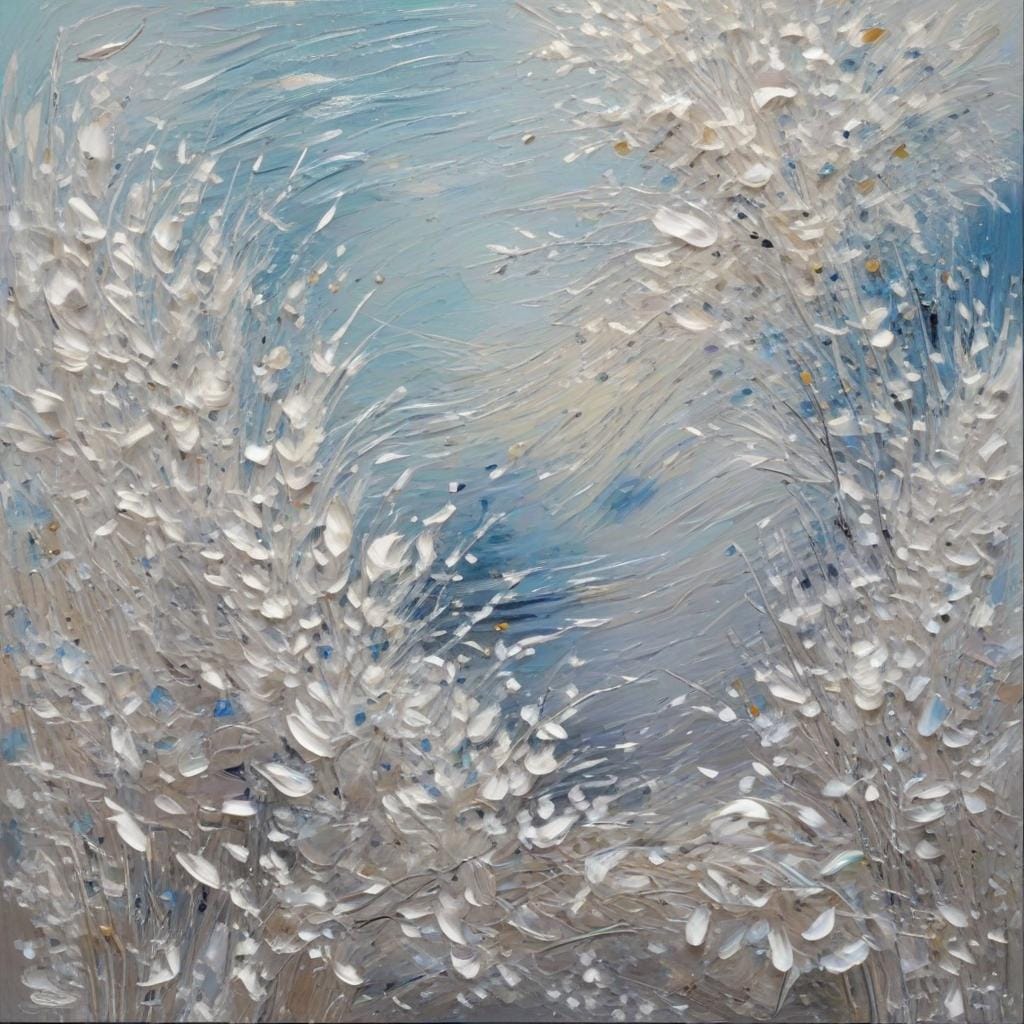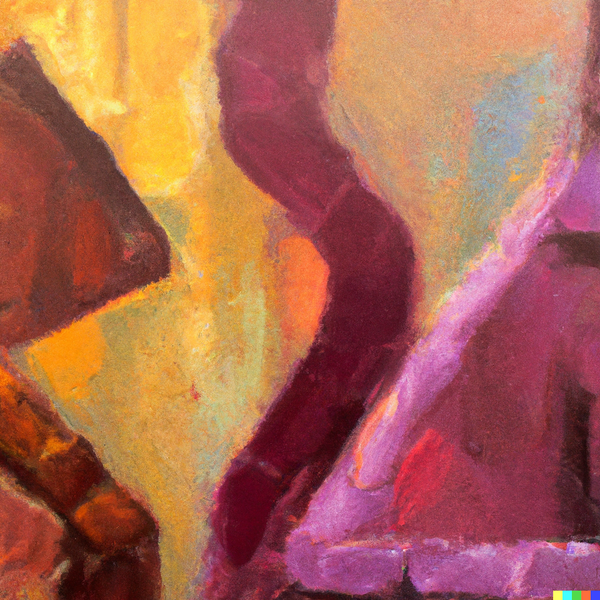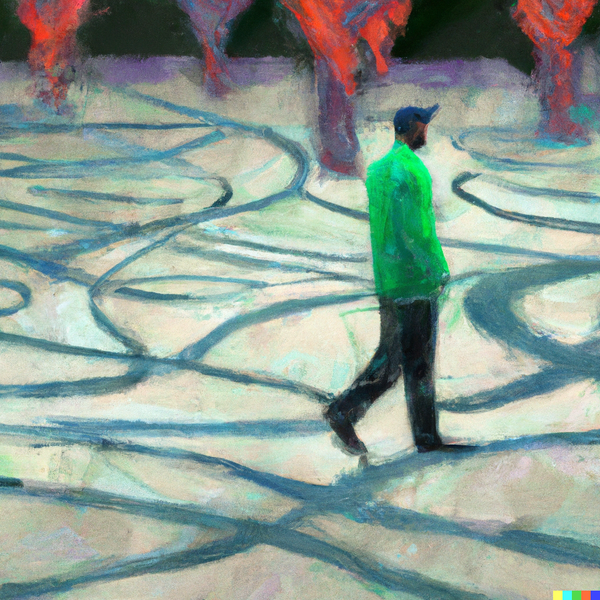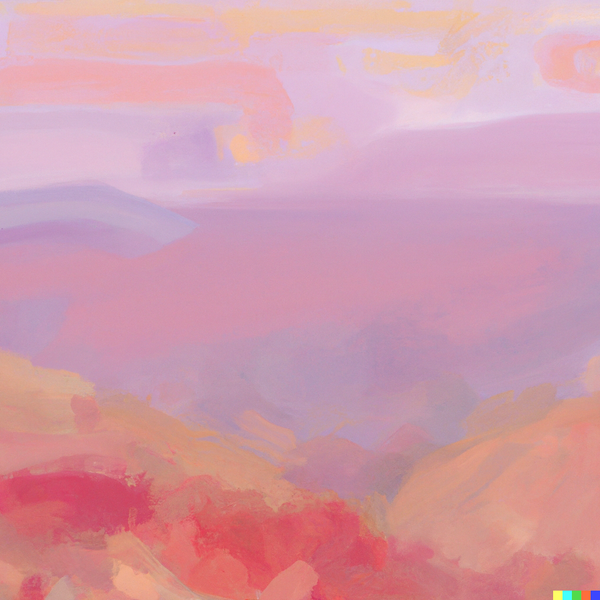silver spoons

If it is at all possible, I think I remember the exact moment I felt empathy for the first time. It was around 2 P.M on a weekday in 2009, in the dining hall of Martin Luther Pre and Primary School (MLS).
I was having ugali and beans, as per the school’s lunch menu. Ugali, as some of you may know, is my home town’s staple food, made of only maize flour and water. Do not be fooled by the bareness of this meal’s ingredients, for without its instinctual ratio, your mixture could turn into either a puddle of viscous white vomit or a compact snowball akin to an asteroid. It is easier to arrive at the latter, and unfortunately – I speak here in my capacity as a former student of Chemistry – ugali tends to harden as it cools. During lunchtime at MLS, it was always the case that one’s ugali stiffened before we ate, as we had to wait until everyone was served, then sing a prayer together before eating. This was true for some teachers and most students, yet the difference was that while students were expected to adhere to the tradition of consuming ugali with their hands, teachers were offered silver spoons. I suppose this had something to do with the fact that the process of eating ugali with one’s hands is not the sexiest of views.
Not that primary school teachers’ sexiness matters, but to further ensure that students were not exposed to the ugliness of their teachers eating ugali—since I have already established that it is not necessarily glamorous—teachers were served their plates at designated tables in the rear end of the dining hall, close to the kitchen and the serving lines. But for some reason, on that one fateful afternoon when my heart grew three sizes, we had teachers join in at student tables. I cannot remember why exactly that was—if the school administration even told us—but I suppose it had something to do with the fact that nine-year-olds, like I was, have the uncanny capacity to simultaneously keep their mouths full of words and food. As the resident yapper of my table, I had a sneaky suspicion that it wasn’t at all ‘random’ that our table was selected to have a teacher on it, who was, again—suspiciously—sitting less than an arm’s length away from me.
Nevertheless, it seemed that the administration’s plan succeeded, as for the first time in a while, after singing our prayer, the dining hall maintained a lullaby-esque tempo of chewing sounds that echoed perhaps with the background of Christian music – Angela Chibalonza or Christina Shusho, I can’t remember. Overplayed songs about forgiveness in marriage and the Psalms come to mind, as well as Swahili renditions of hymns like “Abide With Me,” which I recently downloaded on Apple Music when homesickness struck. It could have also been one of the “Power Rangers” series, “Shrek”, “Cars”, “Toy Story”, or the animation about “Spirit” the horse who made a huge jump at some cliff(?). Or, and I highly doubt this, it could have also been the wedding tape of our school founders, Mr. and Mrs. Mmanga. Regardless of what was on the TV… in a few minutes after we had began eating, there were sounds of chairs being pulled back and forth when the “fast-eaters,” as we called them, finished their meals and went to leave their plates in the collection bin, where Mama Salome would inspect to see if one had finished one’s food. We were the dying children in Africa, after all.
Surely, it wasn’t until seventh grade that I too became a “fast-eater,” for different reasons linked to body dysmorphia and eating disorders. As a fourth grader in 2009 though, and the slow eater that I have been rehabilitated to become once more, I took my sweet time savoring my food, which is “interesting” with a dish like ugali.
Let me break it down for you.
When eating ugali, you have to press the tips of your right hand fingers together, move them close to the ugali, open them like a claw, pull off a piece, shape it into a ball as you squeeze your fingers on your palm, and then once you have the perfect ball shape - tonge -, you dip it into your sauce or stew – mboga – and off it goes into your mouth. The cycle repeats until your hands are positively sticky and your plate has donut-like trails from scooping up the stew.
While the goal of most foods is to simply be ingested, ugali is a little bit more sophisticated than that. For to have a successful ugali-eating session, one must maintain equal parts of generosity and restraint when distributing the stew on the tonge that I just told you about. Expert eaters will even end up with a surplus of stew while average eaters will marry their last ball to the last scoop of their stew. Amateurs, on the other hand, will lose themselves in the sauce only to end up with a misshapen hill of ugali with no way of chugging it down. It is this latter group of people that warranted compassion from nine-year old me.
So on that afternoon in the dining hall at MLS, I ate my ugali with this objective of appropriately rationing the stew, though by then, and even now, it has become almost subconscious. And with my usual noisy banter curtailed by the presence of a teacher at our table, all I could do to occupy my wandering mind was move my eyes.
It appears rather curious that exercising the exploratory nature of my gift of sight was a task reserved for when my mouth, nose, and ears were somewhat constrained. For it is no news that the eye is foundational to our interaction with the world. While appearing like mere glass balls made of flesh, our eyes possess the savoir faire for harvesting and communicating thoughts and feelings that are hidden not only to others but even to ourselves. It’s either by clever conditioning, pure inscrutability, or both, that each emotion carries instructions for the eyes. Having been unaware of this – at least consciously –, as I looked around the room that afternoon, I had no expectations. No curiosity as to what could have been going on in the heads of the other midkids around me, or even the adult subject who was sitting a few inches away from me.
Of course, I must have scanned the room of hundreds of bald-headed students only to be bored and opt to look outside instead. I distinctly remember that I was facing the dormitories’ side that day, so I must have looked at the trees outside the dorms, perhaps wondering why my parents never wanted to send me to boarding school. But what I certainly did do was land on the teacher sitting at my table.
I wish I remembered his name. Yet even if I did, I would have to replace it for some other name to avoid potential legal repercussions. But, I do remember that he was new to the school. He was also tall, perhaps the tallest teacher I have ever known and certainly one of two of the darkest. For some reason, I remember him wearing a yellow shirt that day, which is not a relevant detail at all… unlike the fact that he wore glasses.
Unfortunately for him, his glasses served their one purpose – I hope – yet they couldn’t offer him privacy from my prying eyes. It was often the case that MLS teachers were strict, with three select emotions: anger, happiness, and disgust. So it was unusual that this one teacher’s eyes weren’t as immobile as angry eyes typically appeared to me, or as beaming as those of happiness, or even as contorted as those of disgust. His eyes were aimlessly blinking, the corners trembling ever so slightly. They held a distant faraway look, the depths of which appeared clouded. His nostrils flared… a little bit… yet as I watched him closely, his nose wrinkled, almost as if with the effort of holding back emotion. He took small, hesitant bites, which is unusual when eating ugali because the meal demands gusto. His elbows were on the table and he was holding his silver spoon in his right hand, hanging in the air. His left hand was devoid of objects, yet alive with activity. For, if I remember correctly, his hand movements were so animated that they could be mistaken for some sort of sign language.
I can’t possibly remember what I was thinking at that moment but I will never forget how I felt when my eyes completed their journey of his profile and naturally landed on his plate. The best way I can describe this is that he had a mountain of ugali and a mere molehill of beans. For someone meant to supervise little children, it didn’t look like he was setting the best of examples. To the then nine-year old me, that was such an unfortunate scene, yet it made sense given that he was using a spoon; a useless tool at that, for it increased his chances of ending up with no stew for his ugali. Anybody who’s had ugali will have you know that the meal is essentially inedible without some form of stew or sauce. Even at one’s lowest point, ugali can be eaten with salt – a task that would be torturous with a spoon–, but never by itself. This is why in that moment, yes, for the first time in my life, I too felt my eyes aimlessly blinking, perhaps to match mine dear teacher’s and that was accompanied by a sensation of wanting to be him so that I could take on his burden but simultaneously relieved that I wasn’t him. I could feel a downward tug in the centre of my chest and I distinctly remember temporarily considering offering him my extra beans. But alas, my beans had been contaminated by my nine-year-old fingers and my plate – with hand-crafted deep reddish-brown skidmarks – was no sight for tenderly observant eyes.
And I don’t remember how that particular situation got resolved, but it wasn’t shortly after that incident, that I volunteered to get spanked on behalf of the smiley light-skinned girl who cried so hard that she could essentially be the hero ingredient in a plum galette.





